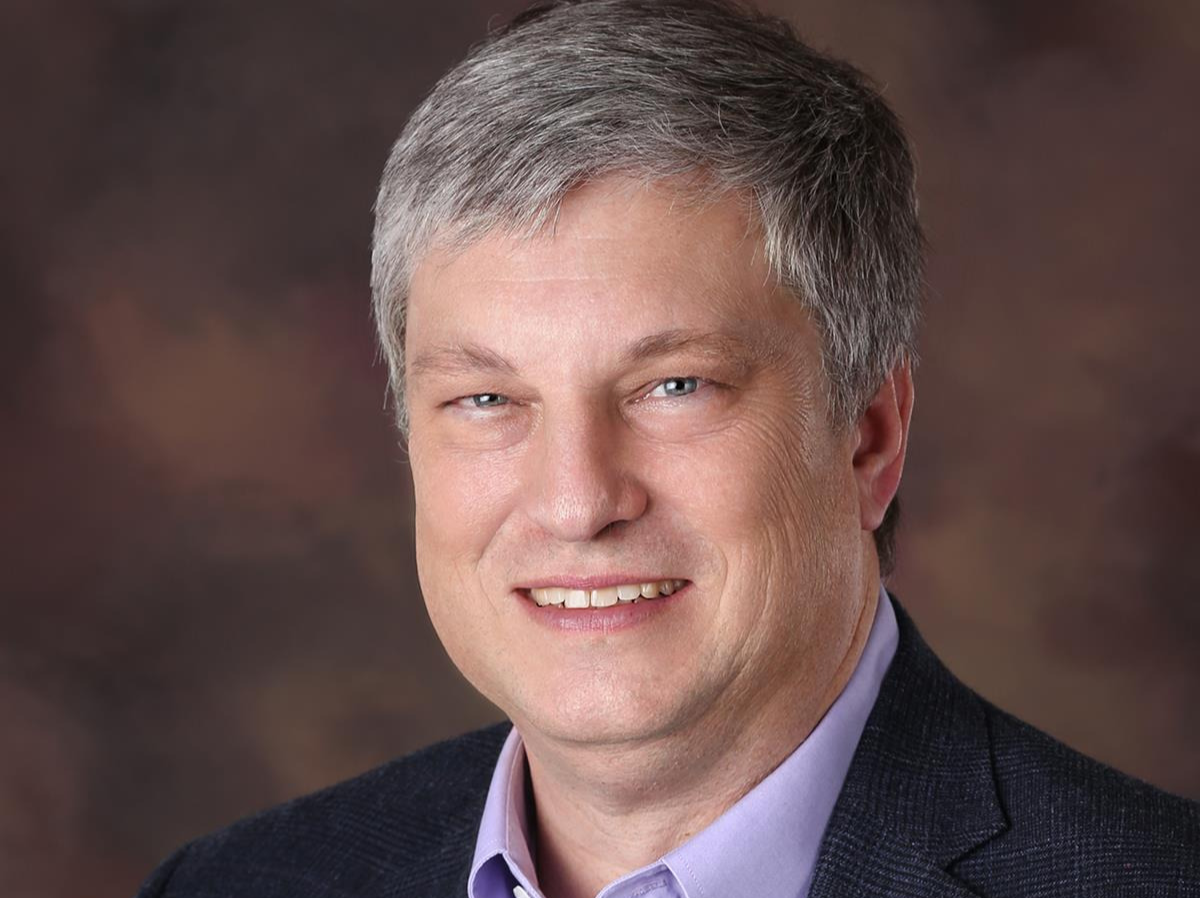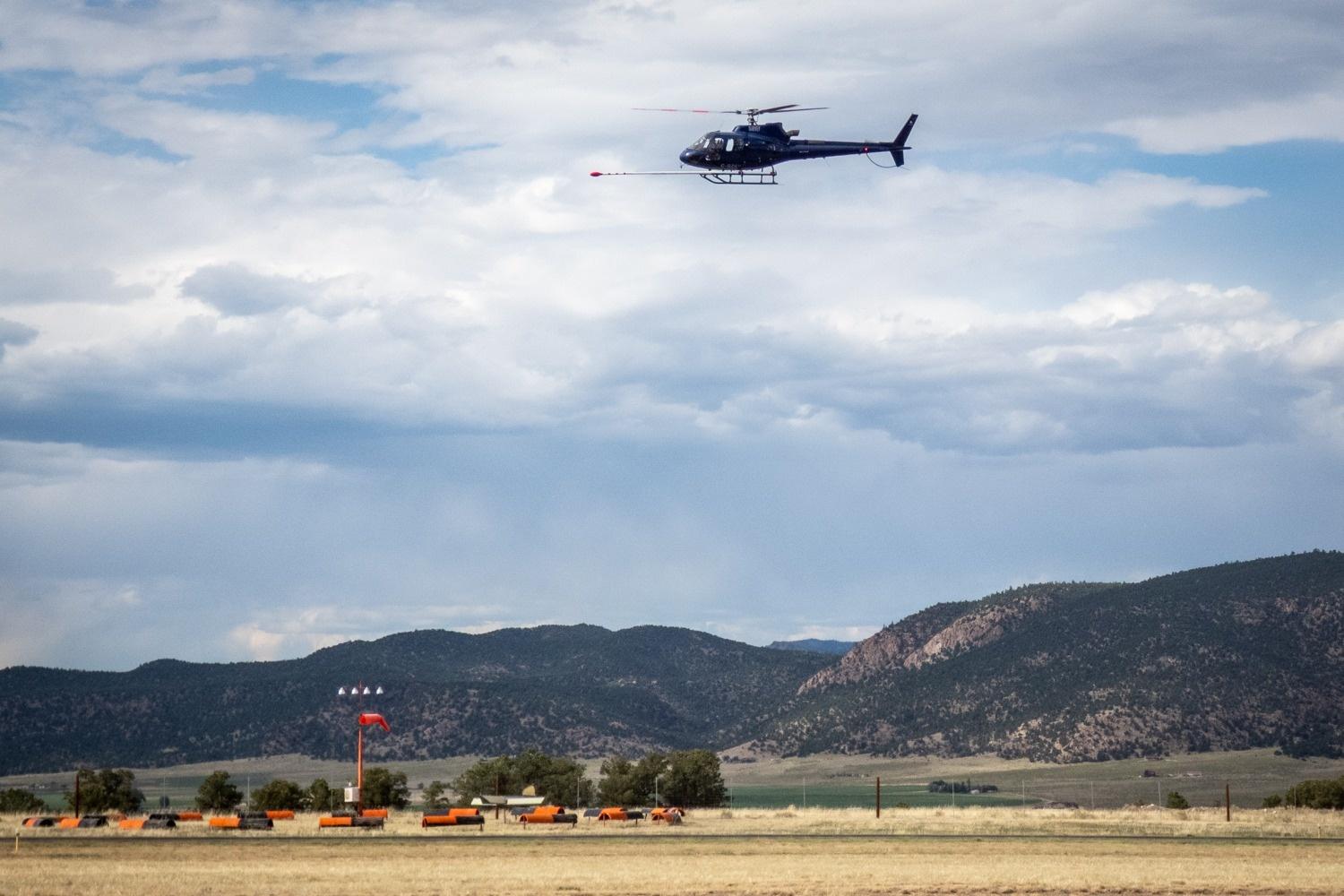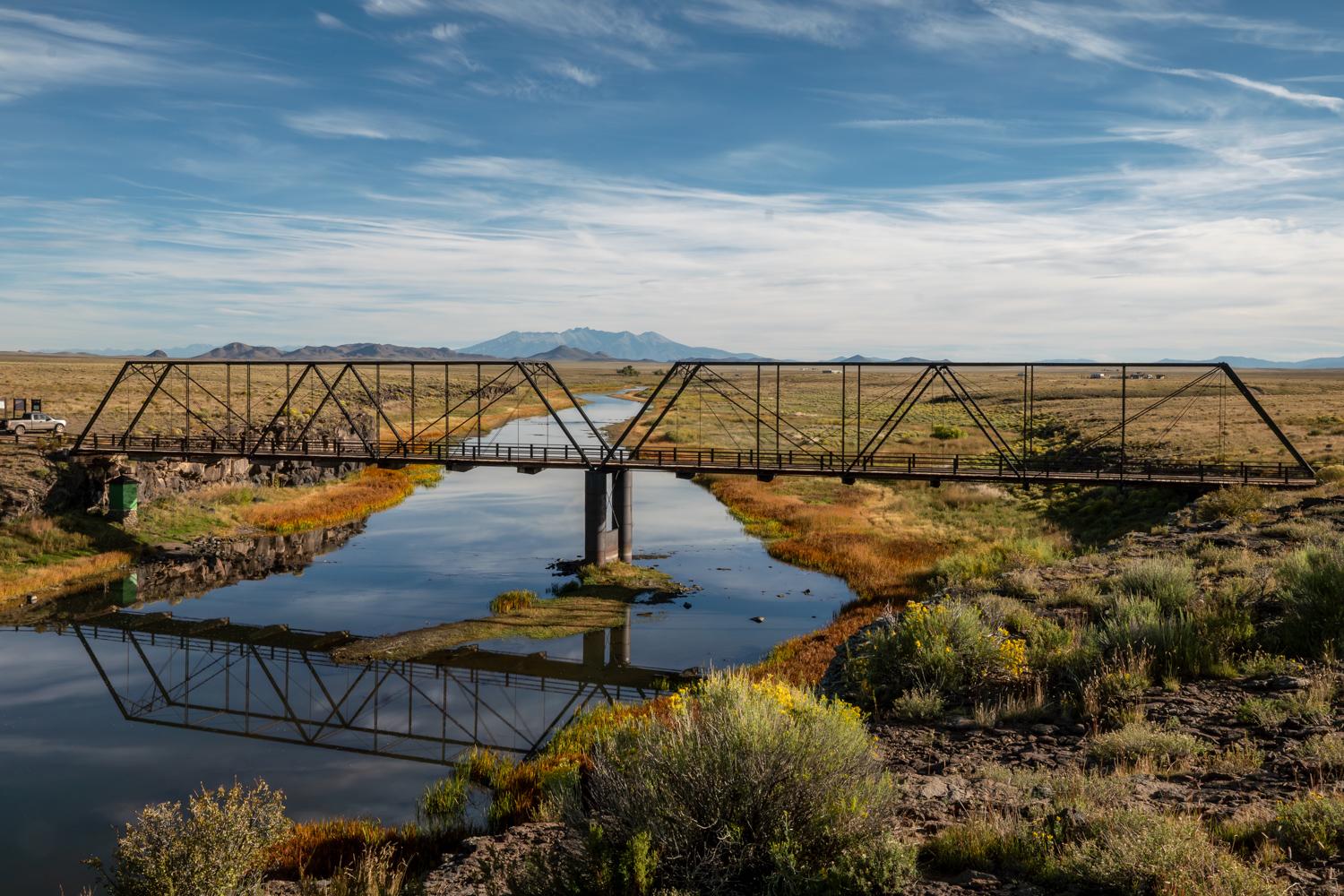
Note: This questionnaire was submitted ahead of the April 2023 election.
KRCC News sent detailed surveys about some of the most critical issues facing city leaders, to the candidates running for the Colorado Springs mayoral seat. The short biography below is gleaned from the candidate’s response, their websites and other sources.
Wayne Williams is a current at-large city councilman. He previously served as Colorado's Secretary of State, El Paso County Clerk and Recorder and El Paso County commissioner. His wife, Holly, is a current El Paso County Commissioner.
He identifies with a collaborative approach to addressing topics in the city and region-wide. "Through community collaboration," he said in KRCC's candidate questionnaire, "Colorado Springs (should remain) the very best city to live, work and raise our families."
The city recently dismissed an ethics complaint against Williams that accused him of misusing city resources in campaign materials.
Role and vision
What is your elevator pitch for why voters in Colorado Springs should choose you as the next mayor?
As a 30-year resident of Colorado Springs, I’ve seen our great city go through many changes. My wife, Holly, and I raised our four amazing children here, and I’ve worked to serve our community. My mission as Mayor is to ensure that through community collaboration, Colorado Springs remains the very best city to live, work and raise our families by emphasizing public safety, transportation and infrastructure, and economic vitality. I serve on Colorado Springs City Council and Chair Colorado Springs Utilities. Previously, I served as Colorado Secretary of State (2015-19), El Paso County Clerk and Recorder (2011-15) and El Paso County Commissioner (2003-11). I’ve seen firsthand the importance of local leaders who work together. I’ve worked to promote our city’s public safety, economic vitality, and our infrastructure needs, particularly in transportation and utilities. I am committed to enhancing services for our growing city, including utilities, parks, police and fire protection.
What do you see as the role and/or function of city government?
I believe the essential roles of city government are to: ensure public safety and order; protect individual freedom and human rights; and provide critical public services. I am committed to leading a city government that provides assistance to our residents and businesses, not one that overburdens them with needless regulations and bureaucratic red tape. We should be promoting innovation and excellence, not stifling it.
What is the number one challenge facing the next mayor of Colorado Springs, and how would you address it?
Public safety. I am dedicated to providing Colorado Springs Police and Firefighters with the personnel, training, tools and resources necessary to keep our neighborhoods, businesses and schools safe. As a councilmember, we obtained voter approval to fund fire mitigation and adopted our city’s first fire evacuation ordinance. I will continue my work with state and local agencies to enhance wildfire preparedness and mitigation. Since joining the city council, we’ve added positions for 62 new police officers, 66 firefighters and funded 3 new fire stations, moved to a continuous police academy and established a public safety fee to make sure new development pays their fair share. As mayor, I will ensure our public safety needs are prioritized.
What is your vision for Colorado Springs in the next 25 years, and what realistic policies do you propose to get us there?
When I think about the future of our city, I see Colorado Springs as our state’s epicenter of commerce, culture and excellence. We will be a model for other large cities to follow. To accomplish this, we need to continue the progress we’re already making. In addition to ensuring public safety and smart growth, the mayor’s office should continue to promote an economic environment that allows for businesses to grow and thrive by preserving a low tax burden while delivering economic growth to our city through business development and recruitment, as well as public/private partnerships and investments. I support using performance-based economic incentives that are tied to the jobs actually created. I’m honored to have received the Chamber’s Regional Leader of the Year Award and now serve on the Board of Directors for the Colorado Springs Chamber and Economic Development Corporation. As County Commissioner, I eliminated our portion of the business personal property tax, and the city has done the same. We must also ensure the availability and affordability of homes. At the city, we’ve eliminated the sales tax and utility connection fees to incentivize private and non-profit construction of affordable housing.
Law enforcement / Public Safety
What is the most pressing public safety issue facing the city and how would you address it?
Changes in the law and in public attitudes have made being a law enforcement officer less desirable. I’m proud to be an appointee of Governor Jared Polis on the Peace Officer Standards and Training Board where I and my colleagues have taken a number of steps to remedy these challenges, including improving training and removing an offender’s POST certification in appropriate circumstances. Maintaining public safety will be one my top priorities as mayor. In my four years on City Council, we have provided funding for an additional 62 police officers. It is also anticipated that our city will need add 200 more police officers by 2035 to keep up with our growth. Like most major cities, Colorado Springs has struggled to fill our available police positions, but we are making progress. We have moved to a continuous year-round police academy and are reducing the waiting time before a new class starts. As mayor, I will make sure that we’re competitive in the recruitment process, but we will always ensure our high standards are met. I will always ensure that our police, firefighters and other first responders know how much we appreciate them and respect their service.
What is your response to the findings from the audit on how the Colorado Springs Police Department uses force? What, if any, changes need to be made to the way CSPD operates?
I am proud to support the men and women of CSPD who lay their lives on the line to keep our community safe. We owe it to them to ensure they have the very best training so that they can develop the skills needed to best engage with the public. As set forth in the outside audit we encouraged, our police do a good job, but as with any group continuous improvement is always necessary. As mayor, I will work to ensure we provide training that emphasizes de-escalation where appropriate and that it is realistic and hands on. This means prioritizing an improved training facility so this can be accomplished. Following the recommendations of our citizens’ advisory panel, we funded alternate response teams who can respond to challenging situations.
What do you think of the current relationship between the Colorado Springs Police Department and the public? Is it acceptable or should more be done, and if so, what?
I believe the relationship between CSPD and the public is strong, but we can always do more. With any government entity, I believe more engagement is a positive thing and that’s what I will promote as mayor. To do this we must provide sufficient officers so that our officers can be more proactive, rather than merely reactive. This will enable them to foster stronger relationships with the community.
What do you think of the Law Enforcement Transparency and Advisory Commission (LETAC)? What would you do differently with this commission or its purpose if given the chance?
As a member of City Council, I helped create LETAC to bring diverse views together on police use of force and related issues. We successfully implemented LETAC’s unanimous recommendation for funding Alternate Response Teams. I support the current advisory role LETAC plays and as mayor I will work to ensure their input on issues is solicited. To be effective, LETAC’s membership must include individuals from different backgrounds so that diverse views are presented. Ultimately, the mayor is the elected official accountable for the police department and other agencies. I oppose shifting this responsibility to appointed bureaucrats.
Emergency officials are implementing new notification software and other measures in the case of a wildfire or other hazard, but some residents say that isn’t enough. How would you address their concerns?
I was evacuated during the Waldo Canyon fire, so I know the importance of evacuation planning. As a member of City Council, I supported the unanimous vote that established our city’s first fire evacuation ordinance. I am proud to support the COS Ready program that enables our residents to get real-time alerts relating to evacuations in our 655 city zones. I also helped create the voter-approved $20 million fire mitigation fund. We’ve seen firsthand in our community the vital role mitigation can serve. As mayor, I will work with our city government to educate our residents about the COS Ready program and the importance of making an evacuation plan. I will also work with our emergency management and public works personnel to address potential bottlenecks. As always, I will continue to solicit feedback from our communities about how we can improve the program further.
Growth
How do you define sustainable and responsible growth, and is the city successful in growing responsibly and sustainably?
Smart growth in Colorado Springs means that growth pays its own way, and we ensure that new development is accompanied by the necessary infrastructure to sustain it. That infrastructure includes roads, parks, water, and police/fire stations. I have successfully championed road and water infrastructure projects, including the widening of I-25 and the Pikes Peak RTA (with the support of the PPAR) and the establishment of new water development and public safety fees on developers. I’ve also fought to acquire new water sources, signing an agreement with Bent County for 15,000 acre feet (enough for 100,000 people) and establishing a new annexation policy guaranteeing a 128% buffer so that we always have enough water for our existing residents. We’ve also emphasized water conservation, and today we use the same amount of water we did 20 years ago, despite significant growth. Together, these actions show we are growing responsibly and sustainably. As mayor, I will continue to fight to ensure we have adequate transportation systems, utilities, fire and police stations, and that we provide the other services needed for a growing city.
What different approach would you take, if any, to help address housing affordability?
I began my civic engagement here when Mayor Bob Isaac asked me to serve on the Board for the Colorado Springs Housing Authority. As Chair of that board, we revitalized Lowell School and expanded housing options in our community, including the creation of Creekside at Norwood in partnership with Peterson AFB to provide off-base housing options for enlisted personnel. As Chairman of the Colorado Springs Utilities Board, I worked to establish a fund to cover utility connection fees for affordable and attainable housing to help encourage construction by non-profits and other community partners. On City Council, I worked with others to establish a program to rebate sales tax for affordable and attainable housing. As mayor, I will continue to work with community partners to incentivize a mix of both market-rate and affordable units. Home ownership is a key to personal wealth creation. As mayor, I will work with the legislature to improve Colorado laws so that we support the building of entry level home ownership like condominiums.
Infill is identified in the PlanCOS master plan as a key strategy for the city moving forward, and yet, council is currently debating annexations. How do you define infill and how do you balance it with annexations?
Infill means that we should focus on development within current city limits rather than simply annexing neighboring areas. Our annexation policy should be based on what is best for the residents of Colorado Springs rather than land speculators and growth should pay its own way. This means that areas should be annexed only if we have sufficient excess capacity for utilities and the cost of providing utilities, public safety, and other services in the area proposed for annexation is covered by the revenue the city will receive from that area.
What do you think of the recent water service extension ordinance passed by council and signed by the mayor aimed at limiting annexations based on water supply? What would you have done differently?
Our priority must be to ensure water for our city residents. Seventy percent of our water comes from the Colorado River, and we must be prepared for potential cutbacks. As Chair of Colorado Springs Utilities, I helped lead the fight to replace the vague “foreseeable future” standard with a new ordinance guaranteeing a buffer before allowing new annexations to occur. We provided several months of public process and changes were made to the initially proposed ordinance to address citizen concerns. Ultimately, we adopted a 128% buffer requirement before new annexations can occur. This still permits the annexation but ensures there are necessary limits to protect our precious water resources. At the same time, I’ve also worked to increase our water supplies. We imposed a water resource fee that’s set aside in a dedicated fund to acquire new water rights which will permit our community to continue to grow. We’ve entered into new agreements with our neighbors in the Arkansas Valley where we fund farmers’ irrigation improvements and then buy the water saved, and we’ve already acquired about 3,000-acre feet with an agreement with Bent County in place to acquire 12,000 more acre-feet, a total of 15,000 acre feet, which provides enough water for 100,000 residents. This also provides another source for water, reducing our reliance on the Colorado River.
How do you balance maintaining the character of Colorado Springs with the need for development? What is the character of Colorado Springs?
The character of Colorado Springs is found in its residents and its neighborhoods. We are welcoming and diverse. That’s why as mayor, I will continue to lead a city government that works with our residents, stakeholders, agencies, organizations and businesses to accomplish a shared vision and goals when it comes to development and every other issue our city faces. Our city is a community of neighborhoods, many with their own distinctive character. That’s why I pushed to ensure our new zoning code (RetoolCOS) respected existing neighborhoods and incorporated important changes requested by the Historic Neighborhoods Partnership.
Transportation / Infrastructure
What is the most important infrastructure project needed in Colorado Springs right now, and how would you address it?
As evidenced by the vote of the people, the expansion of Marksheffel Road so that it is consistently four lanes is our most important infrastructure project. I addressed this need through multiple townhall meetings and public board meetings. As a result of this public input, we placed the Marksheffel expansion on the ballot as the top priority of the extension of the Pikes Peak RTA, where it was overwhelmingly approved by 79.4% of the voters. As Chair of the Pikes Peak RTA, I’ve also worked to advance portions of the construction on Marksheffel. When I was elected to the County Commission in 2002, I promised to address critical infrastructure projects. We began a series of meetings that ultimately created the Pikes Peak RTA through a vote of the people. I then worked to ensure we actually delivered on the promises made. And we did. We have kept each and every promise that was made. That’s why the PPRTA has twice been renewed by our citizens. As a result of these efforts, we’ve built dozens of critical projects in every part of our community, from Milton Proby Parkway and South Academy to Cimarron Bridge and Powers improvements to the creation of the Woodmen/Academy and Union/Austin Bluffs interchanges, the Pikes Peak RTA has been critical to our community’s economic growth.
How do you feel about the transportation options currently available in Colorado Springs? What plans, if any, do you have to increase options for reliable public transportation?
The Pikes Peak RTA set aside 10% of its funds each year for transit. Now more than $15 million per year, this allowed us to add weekend and evening bus service as well as increase frequency. I’ve also worked with the state to add transit options for citizens commuting to Denver. While serving as Colorado’s 38th Secretary of State, I worked in Denver but came home each evening to Colorado Springs, often riding Bustang rather than driving. As mayor, I’m committed to helping bring to pass a new transit center in downtown Colorado Springs that is safer and more efficient.
What are your thoughts about expanding the use of active transportation like bicycles or walking? Should it be a primary focus and if so, what should be done?
The Pikes Peak RTA also provides critical funding to make trail and other connections in our community. I will continue to support providing the public with more transportation options, including cycling and walking, with an emphasis on trail and lane connections. We must continue to prioritize road construction projects to meet the needs of our growing city and ensure reliable transit. I therefore don’t favor eliminating general use lanes of travel.
Parks & Open Space, Economy & Other
General Palmer's original vision for the city of Colorado Springs was that of a planned community, built around its natural beauty and environment. Do you agree with that vision, and if so, how do you plan to stay true to it?
Yes, by continuing our smart growth strategies. I am a strong proponent of maintaining and growing our city’s supply of parks, trails and open spaces. We’ve increased general fund support for these areas by 38% during my four years on council and we’ve added over a thousand acres of parks and open space. And we added more than a thousand acres for El Paso County when I served as a county commissioner. I helped refer the TOPS extension to the voters and I support its passage.
What do you see as the current state of economic diversity, and where does the city have the opportunity to grow?
While I believe we have a strong, diverse economy in Colorado Springs, I would like to do more to recruit business from the technology sector into our city that will provide high-paying jobs and increased revenue. As a member of City Council and of the Board of Directors of the Colorado Springs Chamber and Economic Development Corporation, I know firsthand the critical importance of attracting and retaining good paying jobs. As Chair of Colorado Springs, I’ve helped lead the push to approve an agreement that paves the way for a new rail spur and industrial park south of Fort Carson that could bring about 6,000 manufacturing jobs to El Paso County. This non-city funded $12 million rail spur will extend from an existing rail line serving Colorado Springs Utilities' Ray Nixon Power Plant to potential industrial sites and then extend to Fort Carson, providing a critical connection for our state’s largest primary employer. As we say during COVID, supply chains that depend upon imports from China are vulnerable to disruption, so it’s important to create opportunities for manufacturing here in the United States. Located between the Fort’s firing range and our power plants, it’s a perfect site to accomplish this.
Is the city doing enough to address the issue of people experiencing homelessness? What, if anything, would you do differently?
Colorado Springs is one of the few large cities in America where the number of unhoused have been reduced. We must compassionately address the root causes of homelessness by working with non-profit partners like Springs Rescue Mission, Catholic Charities, and the Salvation Army to provide assistance, education and treatment options for those experiencing drug addiction and/or mental illness. For our community’s health and safety, we must enforce city ordinances that prohibit blocking public right-of-ways and building entrances and camping on, and potentially contaminating, our public spaces and waterways. We worked to ensure our ability to enforce these rules by having sufficient beds available. We also need to expand our Homeless Outreach Team and Alternate Response Teams to meet the needs of our community.
What is your stance on if and when to ask voters to retain funds that exceed the cap imposed by the Taxpayers Bill of Rights (TABOR)?
I support the Taxpayer’s Bill of Rights passed by Colorado voters. Taxpayers, not government, should decide when it is appropriate for taxes to be increased. When existing revenue is not enough to fund essential services, it is both proper and necessary to ask the taxpayers for permission for additional funding. As an elected official, I have referred several ballot measures, including creating the Pikes Peak Rural Transportation Authority. That measure ensured accountability through audits and citizen oversight, limited overhead to less than 1%, and guaranteed specific projects. We delivered what we promised, and our citizens just renewed the PPRTA with 79.4% of the vote. With respect to votes on TABOR refunds, as mayor I will work first to ensure that we are efficiently using the funds we receive. If there is a TABOR surplus, I may support referring measure to the citizens seeking their permission. As a member of City Council, I supported the citizens’ ability to vote on TABOR retentions for (1) funding police and firefighters for public safety, (2) establishing an ongoing fire mitigation fund to protect our community from wildfire and refunding a portion to the voters, and (3) making capital improvements in several parks. Each was adopted by the voters.
Who are your top three campaign donors?
In terms of importance to me, the top 3 are (1) my family members (who both volunteer and contribute financially), (2) the Colorado Springs Professional Firefighters Local 5 (who supported an opponent in 2019 but this year endorsed me because of my support for public safety), and (3) Mayors John Suthers and Lionel Rivera (each of whom have provided strong support). In terms of dollars, the top 3 are the civic group Colorado Springs Forward, the Housing and Building Association, and paving contractor Schmidt Construction.
Quick responses
Would you support city councilors receiving a living wage or salary as opposed to the annual stipend of $6,250?
Yes.
Do you support the legalization of recreational marijuana in Colorado Springs?
No.
Would you support creating an independent board for Colorado Springs Utilities, rather than having council serve as the board?
No.
Do you support Front Range Rail?
No.
Do you support extending Constitution Avenue?
No.
Is the city adequately addressing climate change and adaptation?
Yes.
Do you support the ballot measure that extends the TOPS sales tax?
Yes.








